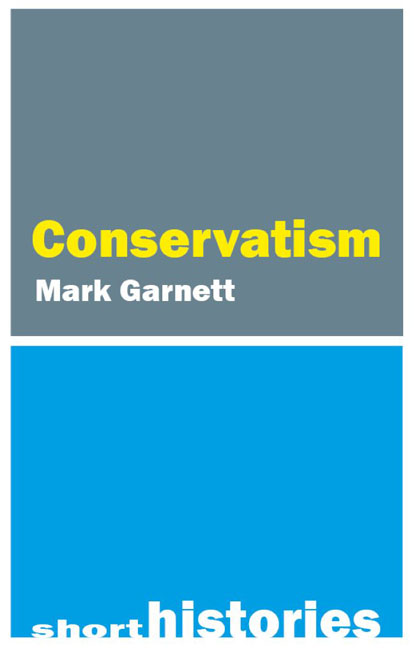Book contents
- Frontmatter
- Contents
- Preface
- 1 The contestable conservative tradition: Burke to Southey
- 2 The Conservative Party from Peel to Salisbury
- 3 “Converging streams”: British conservative thought from Southey to Cecil
- 4 The Conservative Party, 1902–45
- 5 “We must have an ideology”: conservatism since the First World War
- 6 The Conservative Party since 1945
- Conclusions: “Is conservatism dead?”
- Chronology of conservatism and the Conservative Party
- Further reading
- Bibliography
- Index
6 - The Conservative Party since 1945
Published online by Cambridge University Press: 20 January 2024
- Frontmatter
- Contents
- Preface
- 1 The contestable conservative tradition: Burke to Southey
- 2 The Conservative Party from Peel to Salisbury
- 3 “Converging streams”: British conservative thought from Southey to Cecil
- 4 The Conservative Party, 1902–45
- 5 “We must have an ideology”: conservatism since the First World War
- 6 The Conservative Party since 1945
- Conclusions: “Is conservatism dead?”
- Chronology of conservatism and the Conservative Party
- Further reading
- Bibliography
- Index
Summary
In hindsight, the only surprising thing about the 1945 general election result was that it surprised so many observers. Almost all of the opinion polls before the campaign suggested a Labour victory, and by common consent the Conservatives performed poorly in a contest which its leaders had not wanted. In part, this was because the Conservative organization was depleted by continuing military commitments, giving rise to the alarming thought that the party would have fared better if its members had taken less interest in the nation's defence.
However, the inevitable inquest covered the product itself as well as the marketing. Writing immediately after the defeat, Quintin Hogg argued that it arose from “a long pent-up and deep-seated revulsion against the principles, practice and membership of the Conservative Party”. Other post-mortems noted “the decline over several decades, of Conservative thought”, and the fact that the party “lacked a doctrine”, having been “be-devilled for years by pseudo-Conservatism” (Hoffman 1964: 27–8). The party's war-winning leader proved worse than useless in rebutting these allegations. Churchill exposed the main reason for his final choice of partisan allegiance in a notorious election broadcast, alleging that socialism could only be imposed on Britain by means of “some kind of Gestapo”. In his own mind this allegation made perfect sense: existing Labour politicians might be patriotic and talented public servants, but if their party won office they would instantly be swept aside by “Bolsheviks”. The MP Cuthbert Headlam, the only one of four Newcastle Conservatives to retain his seat in 1945, shared Churchill's view, even persuading himself that the new foreign secretary Ernest Bevin would seek to appease the Soviet Union. Before the election Headlam had expected his party to fare badly at the hands of “a new electorate which has been brought up on left wing nonsense without any kind of contradiction for five years”. When the Commons reassembled, he found that Baldwin's “hard-faced” contingent of 1918 had been replaced by “half baked young men”, many of whom had risked their lives during the war rather than simply profiting from it (Ball 2000: 472, 460, 470).
- Type
- Chapter
- Information
- Conservatism , pp. 125 - 162Publisher: Agenda PublishingPrint publication year: 2023

